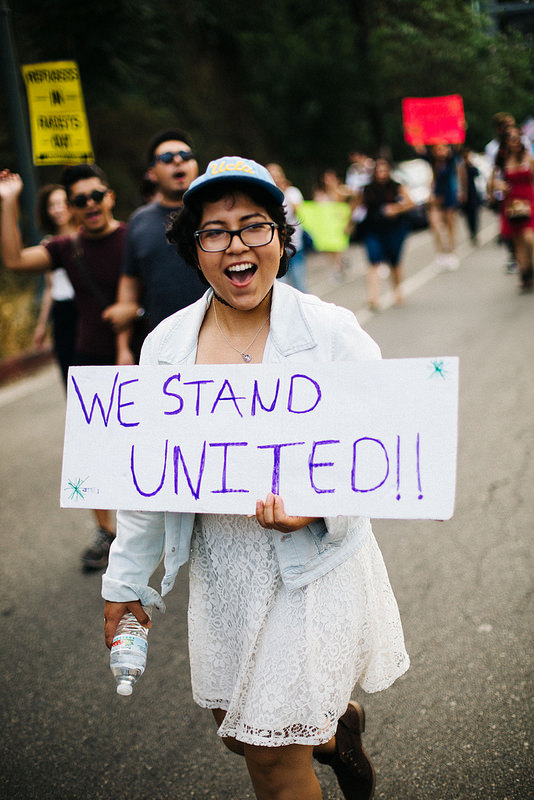House Democrats are making a move to help Dreamers achieve permanent residence. A new bill dubbed HR 6, the Dream and Promise Act, seeks to provide undocumented immigrants who came to the United States as children, the opportunity to obtain permanent residence. In addition, the bill includes a proposal that would allow certain types of immigrants fleeing war or natural disasters the opportunity to apply for permanent residence.
The Dream and Promise Act would cancel the removal (also known as “deportation”) of and grant conditional permanent resident (CPR) status to a person who is inadmissible or deportable from the U.S. if the person:
- has been continuously physically present in the U.S. for at least four years before the date of the bill’s enactment;
- entered the U.S. before turning 18;
- (a) has been admitted to a college, university or other higher educational institution; or (b) has earned a high school diploma, GED, or equivalent post-secondary education credential; or (c) is enrolled in a secondary school or education program that assists students in obtaining a high school diploma, GED or similar state-authorized exam, certificate or credential from a career or technical school providing education at the secondary level,or in obtaining a recognized post-secondary credential;
- provides biometric and biographic data, with alternative procedures available for those with physical impairments;
- passes a background check;
- registered for military selective service if required to;
- pays a fee no greater than $495, though fee exemptions may apply;
- is not inadmissible on criminal grounds, for security or terrorism-related grounds, smuggling, student visa abuse, ineligibility for U.S. citizenship, practicing polygamy, international child abduction, unlawful voting, or renouncing citizenship to avoid taxation;has not participated in persecution;
- has not been convicted of any federal or state offense punishable by a term of imprisonment of more than one year or three or more federal or state offenses for which the person was convicted on different dates and imprisoned for an aggregate of at least 90 days (excluding minor traffic offensesand state offenses for which an essential element is the person’s immigration status); and
- has not been convicted of a crime of domestic violence, with exceptions for those who are victims of domestic violence, sexual assault, stalking, child abuse or neglect, or U nonimmigrant status–eligible criminal activities or if is granted for humanitarian or family unity purposes or is in the public interest
Undocumented immigrants applying as humanitarian protectees would be allowed to apply for permanent residency without conditions provided they have been in the United States since Fall 2016. After having attained permanent residence for a 5-year period, these individuals could apply for U.S. citizenship.
Terms of Permanent Resident Status on a Conditional Basis
- Conditional permanent resident status for Dreamers would be valid for a 10 year period (unless extended by the secretary of the U.S. Department of Homeland Security (DHS)
- Those in conditional permanent resident status would be treated like lawful permanent residents (LPRs) for purposes of access to professional, commercial, and business licenses.
- Conditional permanent resident status may be terminated if the individual no longer meets the inadmissibility requirements, subject to treatment of expungement definitions and inadmissibility waivers; and they must be given notice of the proposed termination and an opportunity for a hearing.
Removal of Conditional Basis of Permanent Resident Status
A person with conditional permanent resident status, regardless of how long they have been in conditional permanent resident status, can be granted LPR status after having met the following requirements:
- meets the inadmissibility requirements, subject to treatment of expungement definitions and inadmissibility waivers;
- has not abandoned their residence in the U.S. during their period of CPR status;
- meets one of the following requirements (subject to the hardship exception below):
- earned a degree from an institution of higher education, or completed at least two years of a U.S. program leading to a bachelor’s degree or higher degree or certificate or credential from an area career and technical education school;
- served in the military for at least 2 years and, if discharged, received an honorable discharge; or
- has been employed for at least 3 years and at least 75 percent of the time the person has had employment authorization, except any periods in which they were enrolled in an institution of higher education, secondary school, or (high school equivalency) education program;
- demonstrates an ability to read, write, and speak English and knowledge and an understanding of U.S. history and government, unless unable to because of a disability;
- pays a reasonable fee commensurate with the cost of processing the application subject to fee exemptions based on specified need-based criteria under Section 302(c);
- provides biometric and biographic data, with alternative procedures available for those with physical impairments; and
- passes a background check.
Although this legislation is expected to go through various amendments and challenges, it is the first step in a long battle to provide Dreamers a path to citizenship.
For more information please click here.

